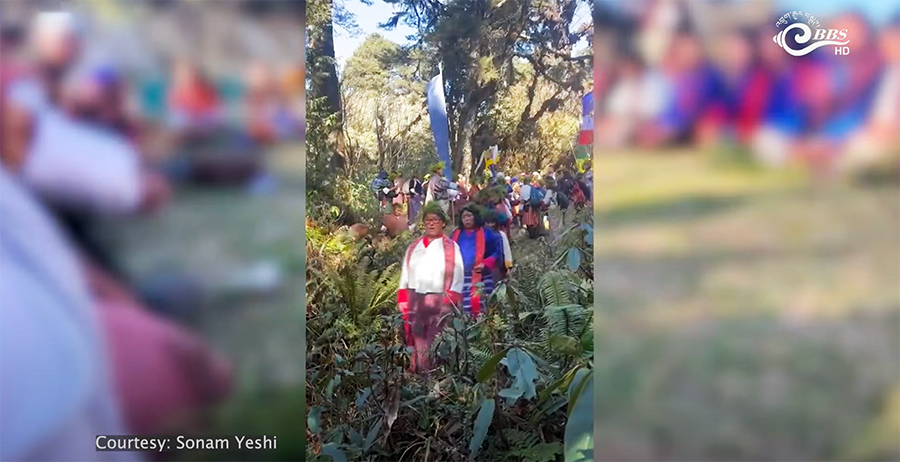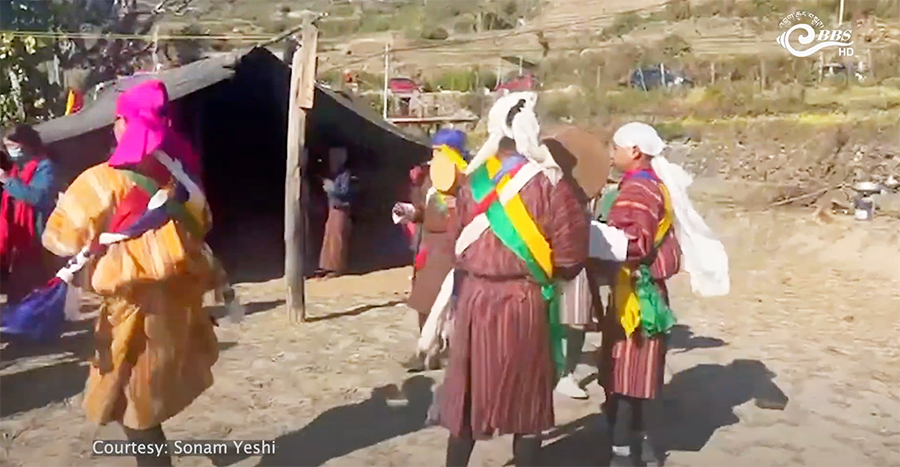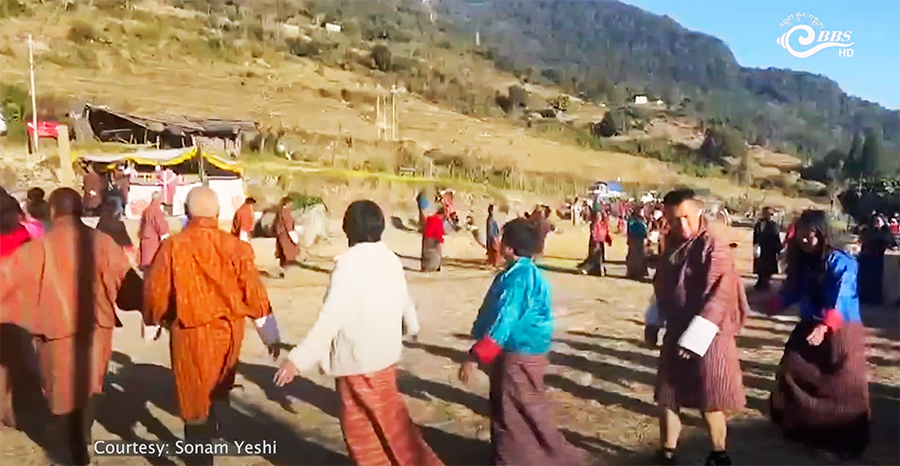 A vibrant three-day Lhaboe festival is in full swing in Trongsa, attracting hundreds of attendees. This year’s celebration is particularly special as it marks the significant three-year cycle, during which their local deity Dorji Dramtsen is ceremonially ushered into the festivities. Let’s take a closer look at how the event unfolds.
A vibrant three-day Lhaboe festival is in full swing in Trongsa, attracting hundreds of attendees. This year’s celebration is particularly special as it marks the significant three-year cycle, during which their local deity Dorji Dramtsen is ceremonially ushered into the festivities. Let’s take a closer look at how the event unfolds.
 The Lhaboe festival, an annual tradition deeply rooted in the cultural and spiritual heritage of Uesa, Tashidingkha and Taktse chiwogs, brings the community together to honour their local deity. On the first day, people hike to a hilltop at around 5 AM for almost four hours to appease the deity who is then symbolically ushered to the village in a long procession.
The Lhaboe festival, an annual tradition deeply rooted in the cultural and spiritual heritage of Uesa, Tashidingkha and Taktse chiwogs, brings the community together to honour their local deity. On the first day, people hike to a hilltop at around 5 AM for almost four hours to appease the deity who is then symbolically ushered to the village in a long procession.
Pema Gyeltshen, Shaman of Tashidingkha_Taktse said “In the three-year cycle where we have to invite our local deities to our village, the two villages of Uesa and Taktse take turns to do it. This year, it is Uesa’s turn and we have celebrated the festival here. We are doing it to preserve our tradition that is passed down for generations.”
 On the festival’s third day, a unique custom called “Changshay” takes centre stage. Villagers visit one another’s homes, celebrating with traditional drinks—a practice carried forward by their ancestors.
On the festival’s third day, a unique custom called “Changshay” takes centre stage. Villagers visit one another’s homes, celebrating with traditional drinks—a practice carried forward by their ancestors.
Nidup Gyeltshen from Uesa said “On the third day, we have Changshay, a tradition where we go from house to house, sharing drinks. This custom has been widely celebrated in both Uesa and Taktse chiwogs since the time of our ancestors.”
Sonam Penjor who is also from Uesa said “No matter where the villagers are, they always come for the festival every year. Moreover, they come excitedly when it is the three-year celebration.”
 The festival also features mask dances and theatrical performances. Participants take on roles such as Zimpoen, Dasho, and Dapoen.
The festival also features mask dances and theatrical performances. Participants take on roles such as Zimpoen, Dasho, and Dapoen.
Khandu Wangchuk from Uesa said “Today, I am a Zimpoen. While in this role, I do not do much other than deal with people and dance as they reward me.”
Yonten who is also from Uesa said “Today, I have the role of Dronyer with a red scarf. The people chose me, so I was instructed to play the role.”
In the past, when the festival was not observed, misfortune would sometimes strike the villages. Therefore, the festival is celebrated to seek the deity’s blessings for peace and prosperity.
 The three-day Lhaboe festival serves as a vital thread in Trongsa’s cultural fabric, uniting the community and preserving cherished traditions. It ends with prayers for continued peace and happiness in the community for all times to come.
The three-day Lhaboe festival serves as a vital thread in Trongsa’s cultural fabric, uniting the community and preserving cherished traditions. It ends with prayers for continued peace and happiness in the community for all times to come.
Singye Dema
Edited by Kipchu








